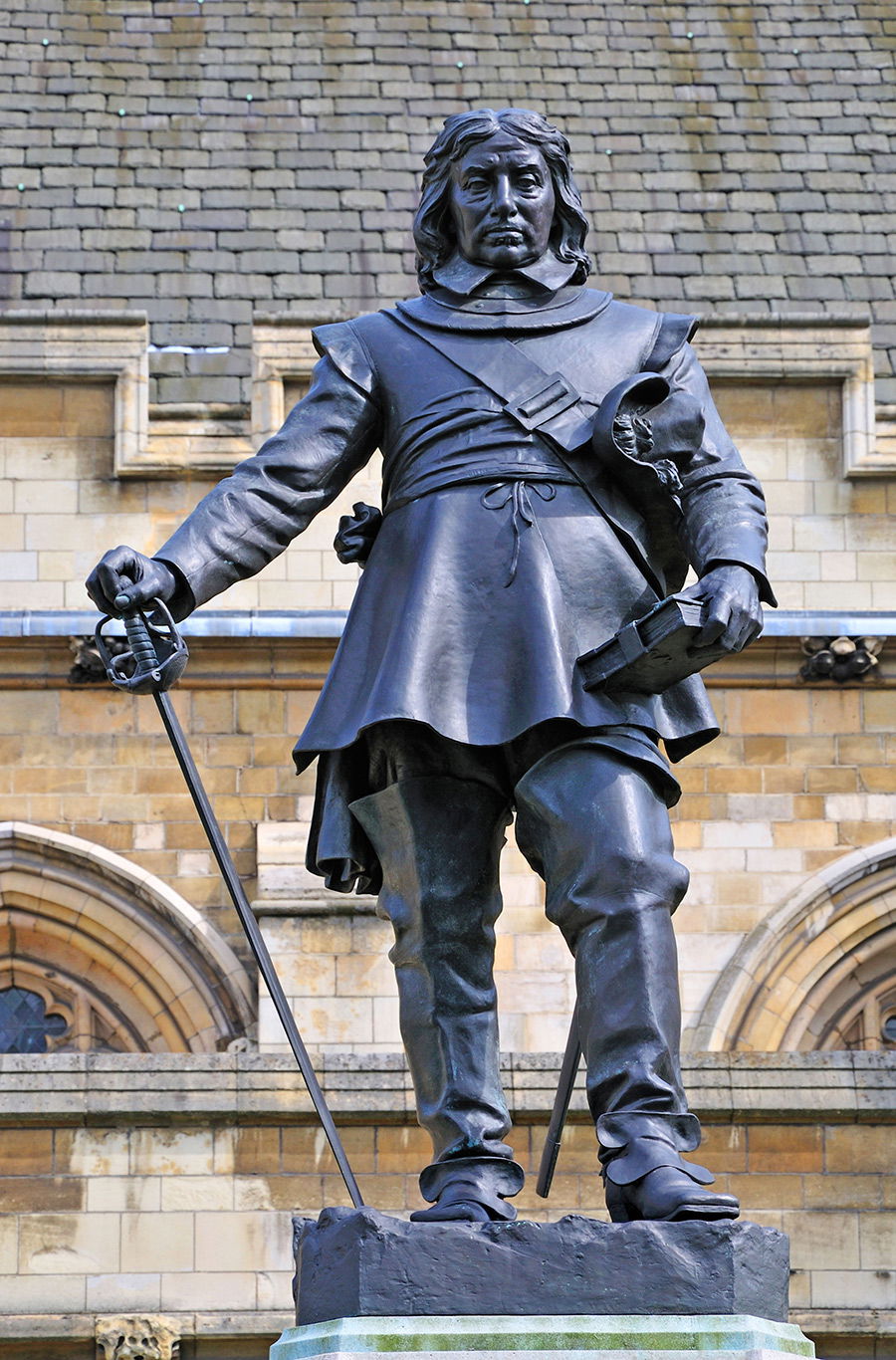 English Hercules: Cromwell, portrayed as the mythic Greek hero, dissolves the Long Parliament. A print of 1653In the latest issue of Cromwelliana,
the excellent journal of the Cromwell Association, Peter Gaunt laments
the ‘slightly cosy and positive consensus’ of current Cromwellian
scholarship. ‘Over the past generation or so’, says Gaunt, scholars of
the Lord Protector have consistently portrayed ‘a man of sincere faith
pursuing godly ends, radical to the end despite the distraction and
temptation of settling for the status quo, a man without much personal
ambition and largely uncorrupted by power and material things’. It is
hard to believe that, outside of Ireland, Cromwell should now be such a
consensual figure and it may explain why, despite his central importance
to British, European, even world history, he is relatively little
discussed outside academic circles.
English Hercules: Cromwell, portrayed as the mythic Greek hero, dissolves the Long Parliament. A print of 1653In the latest issue of Cromwelliana,
the excellent journal of the Cromwell Association, Peter Gaunt laments
the ‘slightly cosy and positive consensus’ of current Cromwellian
scholarship. ‘Over the past generation or so’, says Gaunt, scholars of
the Lord Protector have consistently portrayed ‘a man of sincere faith
pursuing godly ends, radical to the end despite the distraction and
temptation of settling for the status quo, a man without much personal
ambition and largely uncorrupted by power and material things’. It is
hard to believe that, outside of Ireland, Cromwell should now be such a
consensual figure and it may explain why, despite his central importance
to British, European, even world history, he is relatively little
discussed outside academic circles.It was not always so. Great controversy surrounded the erection of a statue of Cromwell outside the Houses of Parliament in 1899, an act opposed by Conservatives and Irish Nationalists and secretly paid for by the Liberal statesman Lord Rosebery. In the 1930s the rise of the European dictators affected the way many saw Cromwell. Maurice Ashley wrote a damning appraisal in 1937, Oliver Cromwell: The Conservative Dictator. The popular historian C.V. Wedgwood was equally dismissive the same year in her offering for Duckworth’s Great Lives series.
Yet both revised radically their opinions of Cromwell. In 1957 Ashley gave the game away with the title of his new study, The Greatness of Oliver Cromwell, while the second edition of Wedgwood’s biography, published in 1973, was a complete volte-face. Since then, though there has been much fine scholarship, only Ronald Hutton has seriously questioned the new orthodoxy.
Consensus rarely excites the public and it may partly explain the relative lack of recent public interest in Cromwell. One of the reasons why, by contrast, the First World War excites such interest is precisely the lack of agreement about its origins, its course, its conclusion and its legacy. Already, in the run up to August 2014, we have seen Gary Sheffield argue that Britain was right to fight in 1914 and that Imperial Germany was to blame for the conflict, a view articulated elsewhere by the journalist and popular historian Max Hastings. Others, such as the unlikely pairing of Richard J. Evans and Simon Heffer, view the conflict as a needless European tragedy. The best recent book on the conflict, Christopher Clark’s magisterial study The Sleepwalkers, recently published in paperback, strongly argues against the idea that Germany was the root cause of war.
Wherever we stand on this argument – and week to week I find myself swaying from camp to camp – it brings the First World War to life as an impassioned historical debate. What we need now is to bring Britain’s political past to life, in order to shed light on its atrophied present and to suggest new directions. The Tory MP Jesse Norman has started the debate rolling with his interesting recent biography of Edmund Burke. But it is Cromwell who should be at the centre of things, just as the 17th century is at the centre of British, European and world history. Let that debate begin.
No comments:
Post a Comment